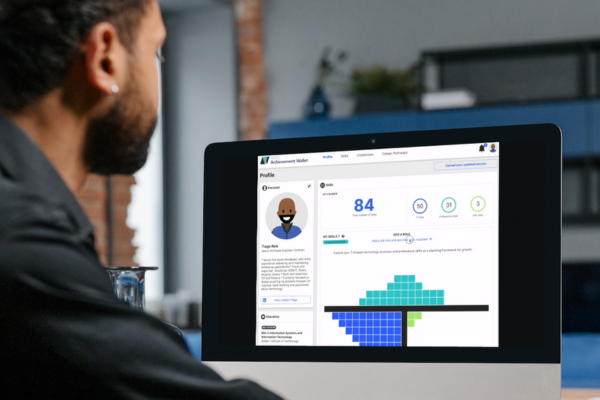Newsletter #2: Co-designing for Data Equity
Learning and employment data is one of the most important resources to understand problems in education-to-workforce pathways and develop solutions to support learners and workers. Too often, this data is inaccessible, both to individuals and to the leaders who have the ability to shape practice and policy for the better. Many learners lack access to their data, and this is particularly true for learners and earners from marginalized, historically excluded, and underrepresented communities. Data equity means learners and earners have equitable access to valuable data and information that can lead to increased opportunities.
Co-designing for equitable access to data
The data models and systems currently supporting learners and earners were seldom designed with them in mind and may perpetuate inequities, further marginalizing their needs and experiences. The Learner Information Framework’s data team is working to co-design an approach that will more equitably support learners and earners and improve their access to information on their education and employment journeys.
“We acknowledge that humans bring our own experiences and biases to the co-design table. Our team is focused on making these biases and their potential impacts visible, so we may co-design the solution differently. Our hope is that this will help to develop a solution that supports equitable access to opportunities for marginalized learners.” – Dr. Kelly Page, from LWYL Studio, a consultant in Equity and Inclusive Experience Design and member of the data team.
So, how are we doing this?
Check out our latest blog post to hear how the Learner Information Framework data team is working to build data equity into our project to ensure it is prioritized and integrated throughout each stage and decision.
Contribute your thoughts
We’d love to hear your thoughts on the following questions via Google Form:
- What resources have you found helpful in learning about increasing marginalized learners’ access to their data and information?
- What are valuable questions to ask to ensure data equity remains a priority in order to build data and technology solutions for today’s learners and the organizations that serve them?
